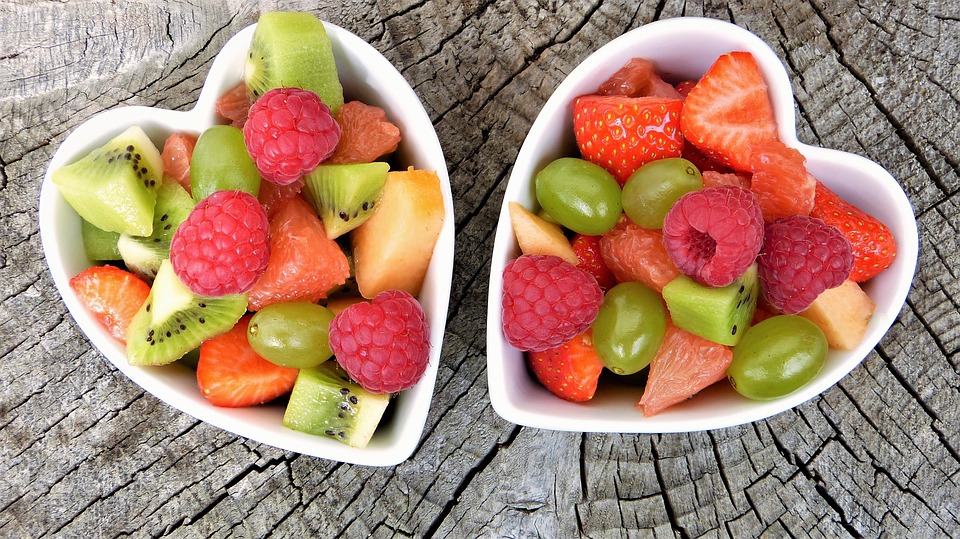Eat Smart, Choose Supplements Wisely
 Healthy eating is important throughout your life and plays a positive role in aging well. Eating smartly can help you feel your best, help your immunity stay strong, keep your brain sharp and lower the risk of some health issues that are more common as you age. Unfortunately, there is no single, perfect wonder food or nutrient that can keep you younger or smarter, but there are specific steps you can take to help maximize your health. Here are four:
Healthy eating is important throughout your life and plays a positive role in aging well. Eating smartly can help you feel your best, help your immunity stay strong, keep your brain sharp and lower the risk of some health issues that are more common as you age. Unfortunately, there is no single, perfect wonder food or nutrient that can keep you younger or smarter, but there are specific steps you can take to help maximize your health. Here are four:
1. Eat protein through the day
Protein, important for many things including muscle mass, is found in all animal products (meat, fish, chicken, cheese, eggs, dairy) as well as soy, legumes, lentils, nuts, seeds and some grains. Studies show that having it spread out through the day can help maintain muscle strength and function as you age. While you typically have protein at lunch and dinner, it’s the morning meal where many people come up short.
6 easy ways to include protein at breakfast:
• Hard-boiled eggs (make them ahead and keep in the fridge).
• Peanut butter or almond butter on whole grain bread.
• Smoothie with milk or soy beverage and fruit. Up the protein by adding Greek yogurt.
• Oatmeal (or other whole grain cereal) with milk or soy beverage, topped with a handful of nuts and some fruit.
• Half a whole grain pita pocket stuffed with cottage cheese and fresh fruit.
• Whole grain wrap made with leftover chicken, beans or hummus.
2. Power up With fruits and vegetables
If you’re looking for super foods, look no further than your fridge. Fruits and vegetables, nature’s perfect super foods, are rich in vitamins, minerals, fibre and a host of plant chemicals that have disease fighting properties including protection against inflammation, the root cause of many chronic diseases. Eating a variety of brightly colored fruits and vegetables on a daily basis is an important step towards good health. While we know it’s important, these delicious foods are sadly lacking in many people’s diets. Add one or two a day and then add more!
6 easy ways to include more fruit and vegetables daily:
• Order vegetable soup or a chopped salad with restaurant meals.
• If you make pasta using a store-bought tomato sauce, add vegetables to it.
• Put berries or a sliced banana on your morning cereal.
• Add sliced tomato, cucumber, spinach leaves to a sandwich.
• Roast your vegetables. They are delicious and you can use leftovers to add to a salad or sandwich the next day.
• Snack on fruit during the day.
3. Eat your vitamins and minerals
Taking a multivitamin/mineral supplement is part of many people’s routine. But choosing one from the array at the drug store can be pretty overwhelming. You also have to decide whether a multivitamin will cover all bases or whether you should take individual supplements.
A multivitamin can fill in the gaps in your diet especially if there are times when your diet is not as good as it could be. Also, there are particular stages in one’s life or circumstances where a supplement may be necessary. But, a supplement won’t substitute for poor eating habits. And, supplements won’t provide fibre or the array of plant chemicals found in plant foods. It’s the natural mix of vitamins, minerals, plant chemicals and fibre found in food that makes whole foods your perfect vitamin pill and disease fighter!
There are reasons why certain people should consider taking one. These include:
• The guidelines for vitamin D suggest 600 IU for people up to age 70 and 800 IU for people over 70. Many professionals suggest 1000 IU per day. It’s almost impossible to get enough vitamin D through food alone.
• Adults over 50 may not be absorbing enough vitamin B12 from foods and are advised to get it from a supplement or fortified foods.
• People on very low calorie or otherwise restricted diets will likely benefit from a multivitamin/mineral supplement.
When it comes to individual supplements, they might be helpful if there is a particular vitamin/mineral lacking. For example, many multivitamins don’t have enough vitamin D to bring you to the level you need. It’s always wise to speak to a dietitian or pharmacist about the supplements you take.
Also, in most cases more is not better. While a multivitamin can help, taking two or three times the dose does not generally give you two or three times more benefit.
4. Go Fishing
Fish, especially cold water, fatty fish including salmon, mackerel, sardines, trout and halibut are great sources of omega-3 fats which are in brain tissue and key to brain function. Some studies suggest they may help memory and mood.
• Cook mackerel, halibut or trout on the barbecue or bake in the oven.
• Add sardines to a salad.
• Have a salmon or tuna sandwich for lunch.
• Enjoy gefilte fish.
• If you don’t want to cook fish, order it when you are out.
Eating wisely means accepting responsibility for nourishing your body and your brain. Inform yourself, pay attention when you shop for food; enjoy cooking, that is, treat yourself with respect.
Fruits and Vegetables
 For convenience, shop for ready to eat fresh vegetables: pre-washed salad greens, baby carrots, broccoli and cauliflower florets, cherry tomatoes, shredded cabbage, celery hearts, cubed turnip, sweet potato and squash. Also look for fresh fruit salad, melon cubes, peeled and cored fresh pineapple.
For convenience, shop for ready to eat fresh vegetables: pre-washed salad greens, baby carrots, broccoli and cauliflower florets, cherry tomatoes, shredded cabbage, celery hearts, cubed turnip, sweet potato and squash. Also look for fresh fruit salad, melon cubes, peeled and cored fresh pineapple.
Buy bags of frozen vegetables that are easy to prepare with no waste. It’s a myth that fresh is always better than frozen. In winter, most fresh produce has been picked far away and transported a distance to the grocery store. Frozen vegetables, harvested at their peak of goodness and frozen quickly, retain much of their nutritional content and may be even more nutritious than their fresh counterpart. They’re also often more a better budget buy than fresh.
 Fran Berkoff RD is a consulting dietitian, whose practice includes nutrition counselling, writing, delivering nutrition seminars and workshops.
Fran Berkoff RD is a consulting dietitian, whose practice includes nutrition counselling, writing, delivering nutrition seminars and workshops.
You can reach her at www.franberkoff.com.





